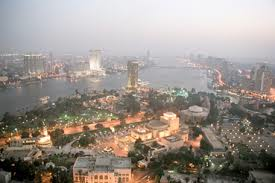Progress in World Bank’s CSO Consultations

Reacting to the dramatic changes in the Arab world’s political landscape, the World Bank has undergone its own review of how it does business in the region. Part of this review involves the opening of greater exchange and consultation with civil society organizations (CSOs) not only as development actors in the field, but also as a barometer of popular attitudes not previously figured in economic-growth analysis.
Among the measures that the Bank is taking in MENA is a mapping exercise of CSOs across the region. In countries where it operates (i.e., Djibouti, Egypt, Iraq, Jordan, Lebanon, Palestine, Tunisia and Yemen), the Bank currently has a total of 201 financed activities at stake.
Since the autumn meetings of World Bank’s directors and its CSO Forum in Washington last October, local CSOs have collaborated with Bank Information Center (BIC) in Yemen, Egypt and Tunisia to engage in new modes of consultation with World Bank officers. These modes of engagement have taken various forms.
The convergence of CSOs on development issues related to the World Bank also follows the 2013 publication of an important critique of Bank projects affecting Egypt’s built environment and engagement with the World Bank’s inspection panel on the problems arising from the Bank-financed energy plant at North Giza. (See accompanying story on Abu Ghalib Reparations in this issue.)
In Egypt, for example, the consultation process so far involves a combination of face-to-face meetings, developing surveys for CSO feedback, contributing to the Bank`s civil society mapping and formulating proposals for Bank direct consultation both in and outside the capital, , and/or developing a collective position paper on The World [Bank-Egypt] We Want. HIC-HLRN provided the core text of the draft position paper, which CSOs are using as a google doc to develop further.
That position paper remains a work in progress, as the current phase poses the first opportunity for collective consultation with the Bank. Many aspects of the emerging CSO vision are consistent with the World Bank Group Strategy, as well as current international standard setting and the unfolding global development agenda, in particular, the post-2015 Sustainable Development Goals. Other proposals test the Bank’s pledge for greater civic engagement.
In light of the World Bank’s pattern of support for private-sector infrastructure and links to Egypt, the CSO’s draft position paper includes proposals for a shift to unprecedented forms of development partnership. For instance, the CSOs point out:
“The World Bank operations in Egypt already seek engagement of compatible interests in the form of efficient, effective and economical public/private partnerships. However, the World Bank so far seemingly excludes public/private/popular and public/popular partnerships involving policy-development and project assistance directly with needy, traditionally organized or informal communities as fully fledged partners. Such a selective approach may exclude those long-standing communities upon whom the state institutions have not yet conferred formal tenure, despite its treaty-bound duty to do so.”
Speaking on the recent commitment of World Bank director to operationalize human right, HIC-HLRN Coordinator Joseph Schechla said “World Bank-Egypt faces the challenge to develop its operations consistent with these binding norms as operational principles.”
For its part, the Egyptian Initiative for Personal Rights is focusing on the premise of economic growth as a development indicator. Soon EIPR will publish a policy brief “Revisiting the Growth-Poverty Nexus Formulated through the Word Bank Country Assistance Strategies: The Case of Egypt.” The paper will explore the pursuit of growth versus equality, and will visualize the size of the gap between Country Assistance Strategies and Country Partnership Strategies, their policy and project implications and the idea of integrated fair growth and needed measures to attain this aim.
Thus, the engagement of Arab civil society in the new dialogue with the World Bank is the fundamentals of both the form and substance of World Bank country assistance in the region
|